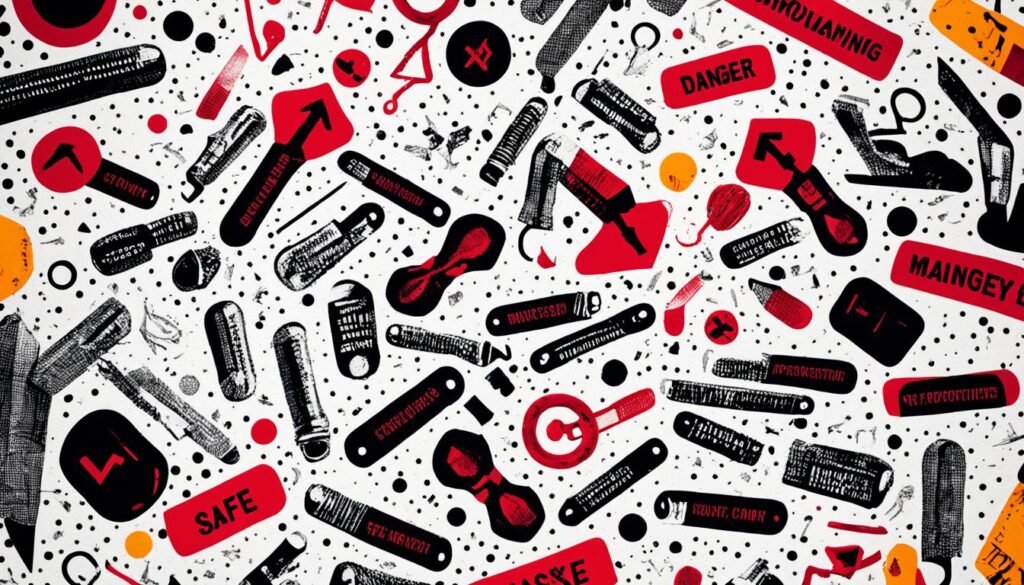Why are hookups toxic?
Did you know that 60% of college students have participated in a hookup at least once during their college years? Hookup culture, characterized by casual sexual encounters without commitment, has become increasingly prevalent among young adults. While it may seem harmless or exciting at first, there are significant reasons why hookups can be toxic for emotional and psychological well-being.
Key Takeaways:
- Hookups can have negative consequences on mental and emotional health, including self-esteem issues and regret after engaging in uncommitted sex.
- Engaging in hookups increases the risk of contracting sexually transmitted diseases due to the high likelihood of unprotected sex and multiple partners.
- Hookup culture has societal implications, including uncomfortable situations, sexual assault, and the objectification of individuals.
- Understanding the potential harms of hookups is crucial in promoting healthier relationships and prioritizing emotional well-being.
- Open communication, consent, and fostering mutual respect can help counteract the toxic effects of hookups and promote healthier relationship dynamics.
The harmful effects on mental and emotional well-being
Engaging in hookups can have detrimental effects on mental and emotional health. Studies have shown that individuals involved in casual sexual encounters often experience negative consequences, including embarrassment, loss of respect, and difficulties in maintaining steady relationships.
An undergraduate survey revealed that a significant percentage of respondents reported these negative outcomes as a result of hookups.
| Negative Consequences | Percentage of Undergraduates Reporting |
|---|---|
| Embarrassment | 58% |
| Loss of Respect | 42% |
| Difficulties in Maintaining Steady Relationships | 39% |
Additionally, both men and women commonly experience regret after engaging in uncommitted sex, as revealed by high percentages in surveys.
| Regret after Uncommitted Sex | Percentage of Respondents |
|---|---|
| Women | 68% |
| Men | 56% |
Furthermore, hookup culture has been linked to lower self-esteem scores and is associated with a greater incidence of depression and anxiety symptoms.
These negative effects on mental and emotional well-being can have serious and long-lasting consequences for individuals involved in hookups, impacting their overall quality of life.
The risk of sexually transmitted diseases
Hookup culture also poses risks to physical health. Research has found that condoms are used in only a small percentage of hookup instances, increasing the likelihood of unprotected sex. This, coupled with the increased likelihood of having multiple or concurrent partners, heightens the risk of sexually transmitted disease transmission. Engaging in hookups can put individuals at risk for contracting sexually transmitted diseases (STDs) and contribute to the spread of these diseases within communities.
According to the Centers for Disease Control and Prevention (CDC), more than 2.4 million cases of sexually transmitted diseases were reported in the United States in 2018. STDs such as chlamydia, gonorrhea, and syphilis can be easily transmitted through unprotected sexual contact. With hookup culture emphasizing casual encounters and minimal commitment, the potential for STD transmission is alarmingly high.
Condom use and STD prevention
A study published in the Journal of Sexual Medicine found that condom use during casual sexual encounters was significantly lower compared to condom use within committed relationships. This lack of condom usage increases the risk of STD transmission, as condoms act as a barrier to protect against infection. The failure to consistently use condoms in hookups contributes to the spread of STDs and hinders efforts to control and reduce their prevalence.
It is crucial for individuals engaging in hookup culture to prioritize their sexual health and take necessary precautions. This includes practicing safe sex by consistently using condoms, getting regular STD screenings, and engaging in open and honest communication with sexual partners about sexual history and health.

The societal implications and ethical concerns of hookup culture
Hookup culture extends beyond individual experiences, with broader societal implications and ethical concerns. Research consistently shows that individuals often engage in casual sexual behavior despite feeling uncomfortable doing so, influenced by societal pressure and the perception that it is the norm. This normalization of casual relationships can lead to uncomfortable situations and, in some cases, facilitate sexual assault and rape.
One of the key issues related to hookup culture is the objectification of individuals. In this culture, people are often treated as disposable objects of gratification, disregarding their emotional needs and the importance of mutual respect and consent. This objectification perpetuates a rape culture where the boundaries of consent are blurred, increasing the risk of sexual assault and undermining the principles of human dignity and respect.
Furthermore, hookup culture contributes to the normalization of objectification and undermines efforts to combat rape culture. By reducing individuals to sexual objects, hookup culture reinforces harmful gender stereotypes and perpetuates the idea that it is acceptable to commodify and exploit others for personal pleasure. This creates a society that devalues interpersonal connections, emotional intimacy, and the importance of building meaningful relationships based on mutual trust and respect.






